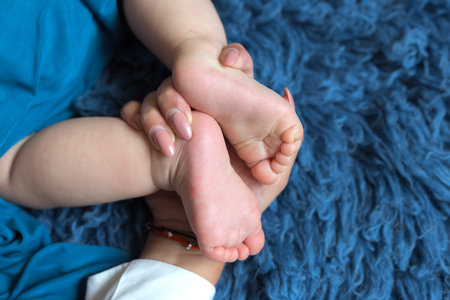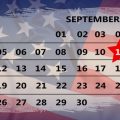Understanding Name Numerology
At the crossroads of tradition and modern curiosity, name numerology has found a unique place in American culture, especially when it comes to naming newborns. Rooted in ancient beliefs, name numerology is the study of how numbers associated with letters can reveal insights into an individual’s personality, destiny, and life path. Each letter in a name corresponds to a specific number, and by calculating these values, parents hope to uncover the deeper meaning and potential woven into their child’s identity.
The idea is that names are more than just labels—they carry vibrational energies that can influence who we become. For many Americans seeking a meaningful connection or a touch of destiny for their children, numerology provides a mystical yet personal framework. Whether parents are drawn to the promise of harmony, leadership, creativity, or resilience, understanding the basics of name numerology helps guide them toward names that resonate with their hopes for their child’s future. As baby naming trends continue to evolve across the United States, numerology remains a fascinating bridge between cultural heritage and personal aspiration.
2. Historical and Current American Baby Naming Trends
Throughout American history, baby naming trends have reflected the nation’s evolving identity, cultural influences, and shifting values. In the early days of the United States, names were often rooted in tradition—drawing from Biblical sources, English heritage, or honoring ancestors. Names like Mary, John, William, and Elizabeth dominated birth records for generations, symbolizing stability and familial continuity.
As America grew more diverse, so did its naming conventions. The waves of immigration in the late 19th and early 20th centuries brought new traditions and unique names from around the world. During this period, families often anglicized names to better assimilate, but many still sought to honor their roots by keeping elements of their original names or adopting meaningful alternatives.
The mid-20th century marked a turning point as individuality became increasingly valued. Parents started experimenting with creative spellings, uncommon names, and even entirely new name constructions. By the 1980s and 1990s, pop culture began to play a major role in shaping baby name choices—with celebrities, movie characters, and musicians inspiring parents across the country.
| Era | Popular Naming Trend | Cultural Influence |
|---|---|---|
| Colonial Era | Biblical & Family Names | Religious Heritage |
| Early 1900s | Anglicized Immigrant Names | Assimilation & Tradition |
| 1950s–1970s | Classic & Gendered Names | Nuclear Family Ideals |
| 1980s–2000s | Pop Culture Inspired Names | Celebrities & Media |
| 2010s–Present | Unique Spellings & Global Influences | Diversity & Individualism |
Today’s American baby naming landscape is more eclectic than ever before. There is a noticeable emphasis on meaning—parents are drawn to names that carry personal significance or positive associations. Spirituality has also made a comeback as families seek names that align with their beliefs or aspirations for their children. Numerology is becoming part of this modern quest for deeper meaning; it offers another layer of intention behind a child’s name choice. Whether inspired by history or motivated by destiny, American parents continue to navigate a rich tapestry of traditions and innovations as they choose names that will shape their children’s lives.
![]()
3. Blending Numerology with American Values
Modern American parents are redefining the baby-naming journey by thoughtfully weaving numerology into their decision-making process. While traditional values like honoring family heritage and cultural identity remain strong influences, today’s parents are also seeking names that resonate with individuality, positivity, and a sense of destiny. Numerology offers a unique bridge between the old and the new—helping families select names that not only sound beautiful but also carry vibrations believed to support a child’s potential and happiness.
In communities across the United States, from bustling cities to small towns, numerology is no longer seen as a mystical fringe practice. Instead, it’s gaining mainstream appeal as more Americans look for meaningful ways to bless their children’s futures. Parents consult online calculators and experts, exploring how different name spellings or combinations affect their baby’s “life path number” or “destiny number.” They embrace the idea that a name can be both an heirloom and a guiding light, blending ancestral roots with hopes for success, kindness, and resilience.
This thoughtful integration is especially visible among parents who want their children to stand out without losing connection to family or community. Whether it’s adapting classic names to achieve a favorable numerological outcome or inventing entirely new ones that harmonize with their values, American families are using numerology as both compass and canvas—painting each child’s future with intention, love, and a gentle nod to fate.
4. Popular Numerology Practices Among Parents
When it comes to naming their newborns, many American parents are increasingly turning to numerology to guide their choices. This ancient practice is embraced with a modern twist, blending the desire for meaningful names with hopes of shaping a bright future for their children. Below are some of the most common numerology techniques that parents use in the United States.
Calculating Life Path Numbers
The life path number is considered one of the most significant numbers in numerology, believed to reveal an individuals destiny and innate traits. To calculate this number, parents add together all the digits of their babys birth date until they reach a single digit. For example, if a baby is born on July 4, 2024 (07/04/2024), the calculation would be: 7 + 4 + 2 + 0 + 2 + 4 = 19; then 1 + 9 = 10; finally, 1 + 0 = 1. Many parents then look for names whose numerological values resonate harmoniously with this life path number.
Choosing Names with Auspicious Vibrations
Another popular approach involves assigning numerical values to the letters in potential baby names using the Pythagorean system. Each letter corresponds to a specific number from 1 to 9. Parents sum these values and interpret the resulting numbers meaning, seeking names that align with positive qualities such as leadership, creativity, or harmony.
Example: Calculating Name Numbers (Pythagorean System)
| Letter | Number |
|---|---|
| A, J, S | 1 |
| B, K, T | 2 |
| C, L, U | 3 |
| D, M, V | 4 |
| E, N, W | 5 |
| F, O, X | 6 |
| G, P, Y | 7 |
| H, Q, Z | 8 |
| I, R | 9 |
For instance, the name “Emily” would be calculated as E(5) + M(4) + I(9) + L(3) + Y(7) = 28; then 2 + 8 = 10; and finally 1 + 0 = 1. Parents may consult guides or numerologists to interpret what this number means for their child’s personality and destiny.
Selecting Middle Names for Balance and Harmony
A growing trend among American families is choosing middle names that complement the numerological value of the first name. By ensuring both names harmonize numerologically—either by matching numbers or balancing strengths—parents hope to create a sense of inner peace and fortitude for their child.
Cultural Adaptations and Modern Perspectives
While rooted in tradition, these practices are often adapted to reflect contemporary values and diverse backgrounds. Many parents blend numerological insights with family heritage or personal inspiration. Ultimately, numerology becomes not just a mystical tool but a way for parents to express love and intention through the powerful act of naming.
5. Stories and Personal Testimonies
Across the United States, families from diverse backgrounds are weaving numerology into the tapestry of their baby naming traditions, often with profound results. Take the Jones family in Seattle, who shared how they struggled to agree on a name for their daughter until a close friend introduced them to numerology. After calculating the numbers associated with several name options, they chose “Lila,” a name whose numerological vibration promised harmony and creativity. Mrs. Jones recalls, “It felt like we were giving her a little extra magic—like her name was a blessing for her future.”
Similarly, in Atlanta, the Nguyen family turned to numerology as a way to honor both their Vietnamese heritage and American roots. They selected names for their twins that not only sounded harmonious in both languages but also aligned with positive life path numbers. Their mother explains, “We wanted names that carried meaning beyond tradition—something that could guide them through life in this new country.”
For some families, numerology becomes a bonding experience. The Rivera family from Texas describes gathering generations together to calculate and debate the best names based on each child’s birth date. Grandmother Rivera shares, “It’s become a legacy—part of our story—knowing each child’s name holds hope and intention.”
There are also stories of parents using numerology as a healing tool during difficult times. The Bakers from New York lost their first child and sought comfort in naming their second baby. By choosing a name with gentle numerological significance, they found solace and a renewed sense of purpose. “It helped us honor our loss while looking forward to the future,” Mrs. Baker says softly.
These heartfelt testimonies reveal that for many American families, name numerology is more than a trend—it’s an act of love and intention that shapes family legacy and empowers self-identity from the very beginning.
6. Controversies and Skepticism
While name numerology has found a place in American baby naming trends, it is not without its share of controversies and skepticism. Many Americans approach numerology with caution, often questioning its validity and scientific basis. Critics argue that numerology lacks empirical evidence and relies heavily on coincidence rather than causation. In the scientific community, name numerology is frequently categorized as a pseudoscience, with experts emphasizing the absence of measurable outcomes or peer-reviewed research to support its claims.
Culturally, the United States is a melting pot of beliefs, leading to diverse attitudes toward numerology. Some families embrace it as a meaningful ritual or a way to honor heritage, while others dismiss it as mere superstition. The debate often centers around whether choosing a baby’s name based on numbers truly influences destiny or simply offers comfort through the illusion of control. Additionally, some religious groups voice concerns about numerology’s spiritual implications, viewing it as incompatible with their faith traditions.
Despite these criticisms, the enduring curiosity about destiny and identity keeps the conversation around name numerology alive in America. For some parents, even if they are skeptical, exploring numerological meanings can be a fun or bonding experience during the naming process. Ultimately, while skepticism remains prevalent, the cultural landscape allows for both critical discourse and personal exploration when it comes to naming a child through numerological guidance.
7. The Future of Name Numerology in America
As American society continues to evolve, the future of name numerology appears increasingly promising and influential. Emerging trends suggest a growing fascination with spirituality, self-discovery, and the energetic resonance that names can hold. Parents today are more open than ever to exploring unconventional naming practices, seeking names that not only sound beautiful but also carry profound personal and spiritual meaning.
The rising popularity of holistic lifestyles, mindfulness, and alternative wellness practices has paved the way for numerology to become an integral part of baby naming decisions. Social media platforms, online communities, and celebrity endorsements further amplify these practices, making information about name numerology accessible and inviting for a wider audience across the United States. As more parents share their stories about choosing numerologically harmonious names for their children, this once-niche tradition is moving closer to mainstream acceptance.
Looking ahead, it’s likely that spiritual naming practices will blend with other cultural influences, creating unique and deeply intentional names that reflect both heritage and personal destiny. As technology advances, we may even see sophisticated apps and online tools designed to help parents calculate, interpret, and select names based on numerological compatibility with family members or desired life paths.
Ultimately, the long-term influence of numerology on American baby naming conventions could lead to a new era where names are chosen not just for their phonetic appeal or familial significance but also for the energy and potential they are believed to bestow. In this way, each child’s name becomes a gentle guide—a loving wish for harmony, success, and soulful fulfillment throughout their journey in life.
As generations grow up with this heightened awareness of the power in a name, it’s possible that numerological considerations will become as commonplace as traditional factors like honoring relatives or following trends. In embracing these ancient wisdoms with modern intention, America’s approach to naming may continue to transform—offering every new soul a meaningful foundation upon which to build their unique destiny.


